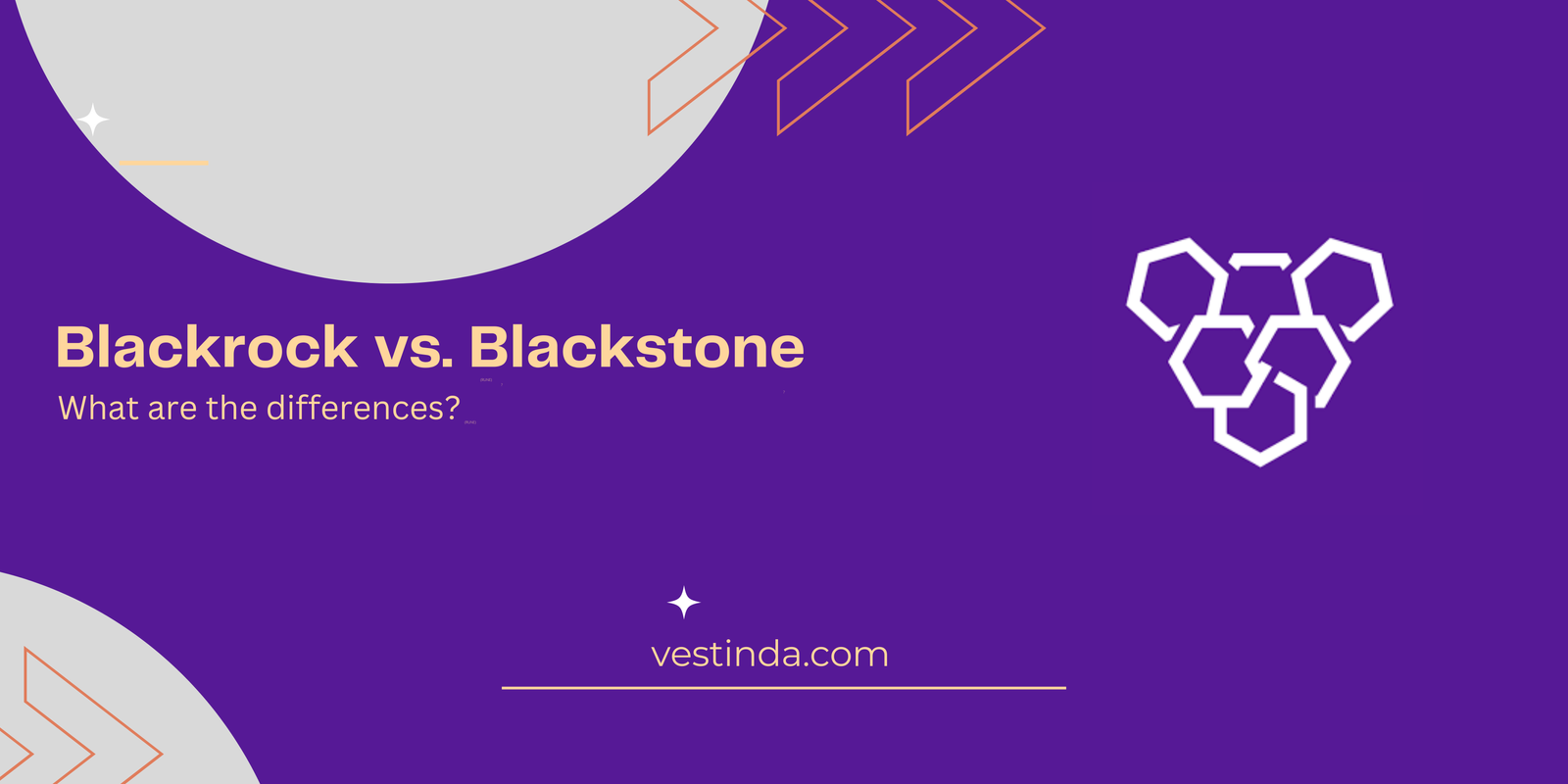Blackstone vs BlackRock: Understanding the Giants of Finance
The world of finance is vast, with two names often standing out—Blackstone and BlackRock. These industry titans operate globally, yet many people get confused about their differences. At first glance, their names might sound similar, but Blackstone and BlackRock are distinct companies with different business models and goals. In this article, we will dive deep into the details of Blackstone vs BlackRock, exploring their histories, business structures, and the key differences that make each unique.
The Origins of Blackstone and BlackRock
Both Blackstone and BlackRock have fascinating origins. Interestingly, their stories are somewhat connected, which adds to the confusion. But let’s break down their beginnings to understand them better.
- Blackstone: Founded in 1985 by Stephen Schwarzman and Peter Peterson, Blackstone started as a private equity firm. Their primary focus was buying, restructuring, and selling companies for a profit. Over the years, Blackstone expanded its operations into real estate, credit, and hedge fund management, solidifying its status as a global investment powerhouse.
- In contrast, BlackRock was founded in 1988 by Larry Fink and several partners. It began as a risk management and fixed-income institutional asset manager. However, over time, BlackRock shifted towards investment management, becoming the world’s largest asset manager, with trillions of dollars under its control. Today, it is known for its exchange-traded and index funds (ETFs) expertise.
Key Takeaway:
While Blackstone focuses more on private equity and real estate investments, BlackRock is a dominant player in asset management, particularly in ETFs and mutual funds.
Blackstone vs BlackRock: Business Models
The primary difference lies in their business models when comparing Blackstone vs BlackRock.
Blackstone’s Business Model
Blackstone thrives on what is known as private equity. Simply put, they buy, improve, and sell companies for a profit. Blackstone’s strategy relies on:
- Acquisitions: They purchase companies or assets that are undervalued.
- Restructuring: They invest in improving the efficiency and profitability of these companies.
- Exit Strategy: Once the company is in a better financial position, Blackstone sells it, ideally for a much higher value.
Additionally, Blackstone has a strong presence in real estate. Their investments in real estate include commercial properties, residential buildings, and even large-scale infrastructure projects.
BlackRock’s Business Model
BlackRock, on the other hand, is in the business of managing investments for others. They don’t buy companies; instead, they manage the money of millions of people, institutions, and governments. Some core elements of BlackRock’s business model include:
- Asset Management: BlackRock manages a wide range of assets, including stocks, bonds, and real estate investments, on behalf of its clients.
- Exchange-Traded Funds (ETFs): Through its iShares brand, BlackRock offers a variety of ETFs, which are popular among individual and institutional investors alike.
- Risk Management: BlackRock provides sophisticated risk management services to clients, helping them navigate financial risks and protect their investments.
Key Takeaway:
Blackstone makes money by buying and selling companies, while BlackRock earns fees by managing client assets.
The Size and Scale of Blackstone and BlackRock
When it comes to Blackstone vs BlackRock, size certainly matters. Both companies are giants in their own right but operate at different scales.
Blackstone’s Size
As of 2024, Blackstone manages approximately $1 trillion in assets. While this is impressive, Blackstone’s focus is narrower than that of BlackRock, primarily revolving around private equity, real estate, and credit investments.
BlackRock’s Size
On the other hand, BlackRock is the largest asset manager in the world, overseeing more than $9 trillion in assets. This massive scale gives BlackRock enormous influence over financial markets and corporate governance. With such a vast portfolio, BlackRock has become a key player in the global economy.
Key Takeaway:
While Blackstone is a giant in private equity and real estate, BlackRock’s sheer size in the asset management industry dwarfs Blackstone by several multiples.
Blackstone vs BlackRock: Investment Strategies
Understanding the investment strategies of Blackstone vs BlackRock can help you appreciate their differences even more.
Blackstone’s Investment Strategy
Blackstone’s strategy revolves around identifying undervalued companies and assets. They invest in:
- Private Companies: Blackstone buys companies that are not publicly traded, works to improve their operations, and then sells them.
- Real Estate: Blackstone is one of the world’s largest private real estate investors, focusing on everything from hotels to logistics centres.
- Alternative Investments: Blackstone invests in credit markets, hedge funds, private equity, and real estate.
BlackRock’s Investment Strategy
BlackRock’s strategy is more focused on managing investments on behalf of its clients. Key areas include:
- ETFs and Index Funds: BlackRock’s iShares brand is synonymous with ETFs, which allow investors to track indices like the S&P 500 without directly buying stocks.
- Sustainable Investing: In recent years, BlackRock has placed a strong emphasis on environmental, social, and governance (ESG) investing, promoting sustainability in its investment strategies.
- Risk Management: Through its Aladdin platform, BlackRock provides sophisticated risk management tools to institutional clients.
Key Takeaway:
Blackstone focuses on acquiring and selling private companies, while BlackRock provides investment solutions for a broad range of clients and emphasizes sustainable investing.
Comparing the Leadership: Blackstone vs BlackRock
Leadership plays a vital role in shaping the direction of any company, and Blackstone vs BlackRock is no different.
- Stephen Schwarzman (Blackstone): Co-founder and CEO of Blackstone, Stephen Schwarzman, has been a critical figure in the private equity world for decades. His aggressive acquisition strategies have built Blackstone into a global powerhouse.
- Larry Fink (BlackRock): As the co-founder and CEO of BlackRock, Larry Fink has become one of the most influential figures in finance. Under his leadership, BlackRock has grown into the world’s largest asset manager, with a particular focus on sustainability and risk management.
Key Takeaway:
Both leaders have transformed their companies into global financial giants with distinct business strategies.
Blackstone vs BlackRock: Risk and Reward
Every investment involves some degree of risk, and understanding the risk profiles of Blackstone vs BlackRock is essential.
Blackstone’s Risk Profile
The risks can be high since Blackstone’s strategy involves buying companies and real estate. The success of their investments depends on how well they can turn around the companies they buy. However, when things go well, the rewards can be substantial.
BlackRock’s Risk Profile
While managing trillions of dollars, BlackRock focuses on providing stable, long-term growth for its clients. Its large-scale investments in ETFs and index funds reduce some risks by diversifying investments across many companies. However, as with any investment firm, there are still risks, especially during market downturns.
Key Takeaway:
Blackstone’s investments tend to be riskier but can lead to higher rewards, while BlackRock focuses on stability and long-term growth for its clients.
The Future of Blackstone vs BlackRock
As the financial landscape continues to evolve, the future of Blackstone vs BlackRock will be shaped by global trends such as technology, sustainability, and market shifts.
- Blackstone: Blackstone’s future will likely see continued private equity and real estate growth. They are increasingly focusing on technological investments and data-driven real estate ventures.
- BlackRock: BlackRock’s commitment to sustainable investing is expected to drive its future growth. With more emphasis on ESG, BlackRock is positioning itself as a leader in responsible investing.
Key Takeaway:
Both Blackstone and BlackRock are poised for future success, but their paths will be shaped by different trends—technology for Blackstone and sustainability for BlackRock.
Blackstone vs BlackRock: A Quick Comparison
Here’s a quick overview of the key differences between Blackstone and BlackRock.
FeatureBlackstoneBlackRock
Founded 1985 1988
Business Model Private Equity, Real Estate Asset Management, ETFs
Assets Under Management ~$1 trillion ~$9 trillion
Focus on Acquisitions and Restructuring Investment Management
Risk Level High Risk, High Reward Moderate Risk, Stable Growth
CEO Stephen Schwarzman Larry Fink
Conclusion
In the debate between Blackstone and BlackRock, it’s clear that both companies are titans in the world of finance, but they operate in very different spaces. While Blackstone excels in private equity and real estate, BlackRock dominates asset management and ETFs. Both companies offer unique opportunities and strategies for investors, making them key players in shaping the global economy.
So, the next time you hear someone mention Blackstone vs BlackRock, you’ll know exactly how they differ—and why both are essential to the financial landscape.





Post Comment